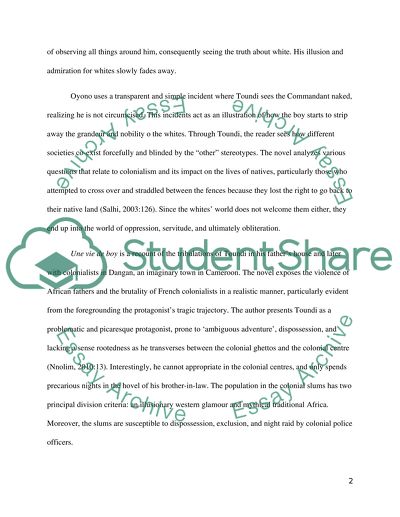Cite this document
(“Anti-Colonialism and Affirmation of Nationalism Essay”, n.d.)
Retrieved from https://studentshare.org/literature/1445243-how-far-does-oyono-go-in-une-vie-de-boy-in-his
Retrieved from https://studentshare.org/literature/1445243-how-far-does-oyono-go-in-une-vie-de-boy-in-his
(Anti-Colonialism and Affirmation of Nationalism Essay)
https://studentshare.org/literature/1445243-how-far-does-oyono-go-in-une-vie-de-boy-in-his.
https://studentshare.org/literature/1445243-how-far-does-oyono-go-in-une-vie-de-boy-in-his.
“Anti-Colonialism and Affirmation of Nationalism Essay”, n.d. https://studentshare.org/literature/1445243-how-far-does-oyono-go-in-une-vie-de-boy-in-his.


